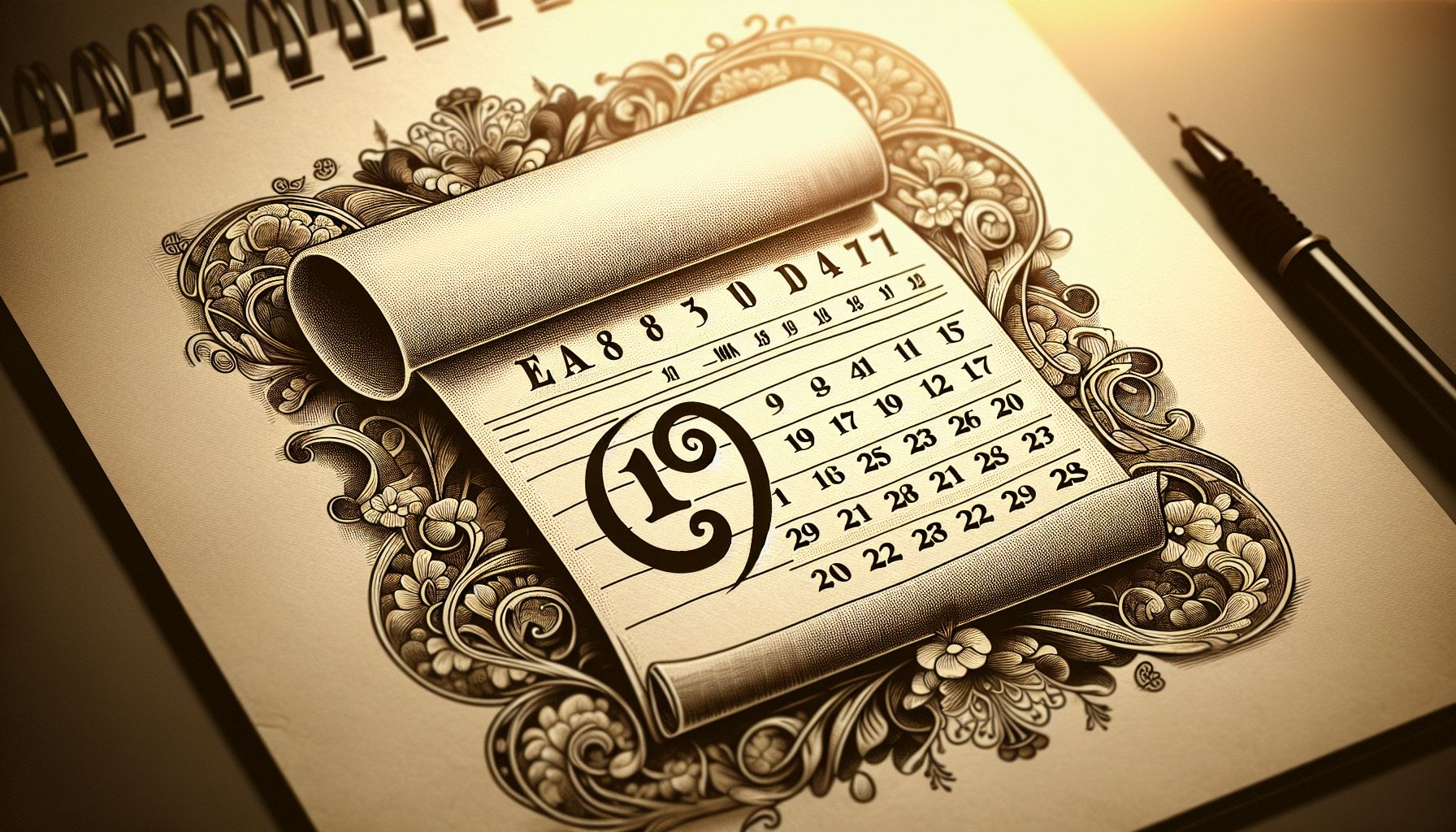Age Calculator
The Age Calculator tool calculates your exact age based on your date of birth, providing precise results in years, months, and days. This tool is perfect for individuals, HR professionals, and event planners who need to determine age accurately for various purposes. The process is simple and quick, giving you an accurate age calculation instantly.
Share on Social Media:
Effortless Age Calculation: Find Out Your Exact Age Instantly with Our Age Calculator
Want to know your exact age or the days between two dates? Enter the PagesTools.com age calculator. By simply entering your birth date or any two dates, you’ll receive an immediate, precise calculation. From weeks to seconds, you’ll have the detailed breakdown without any fuss. Throughout this article, we’ll guide you on how to use the age calculator effectively for various needs.
Key Takeaways
The PagesTools.com Age Calculator provides precise age calculations in various units (years, months, weeks, days, hours, minutes, seconds), considering leap years and days in each month.
It allows users to calculate the exact age interval between two dates, determine age on specific days for past or future events, and project future age with date and time specificity.
Cultural and legal variations influence how age is calculated and recognized, with significant implications for cultural celebrations, legal rights, and milestone achievements.
Discovering Your Exact Age

Calculating one’s exact age may seem straightforward - just subtract your birth year from the current year, right? Actually, it’s a bit more complex than that. The PagesTools.com Age Calculator takes into account your birth date, time, and year to provide you with an accurate age. This precision is crucial in situations that require exact age information, such as legal proceedings or medical treatments.
Moreover, the age calculator doesn’t just provide your age in years. It can break it down into different units like months, weeks, and days. This ability to calculate age in various units is made possible by accounting for factors like the number of days in each month and the occurrence of leap years.
Birth Date and Time: Starting Points for Calculation
While determining your birth year is a straightforward process, the exact day and time of your birth play a crucial role in calculating your exact age. Even a few minutes can make a difference. For instance, twins born a few minutes apart will technically have different ages.
Providing the correct birth date and birth time, including the hour and minute, is crucial for the age calculator to deliver an accurate calculation. Inputting incorrect information can lead to miscalculations, which can affect several aspects of your life, such as legal matters and medical treatments.
Leap Years and Their Role in Age Calculation
Leap years, which occur every four years, add an extra day to the calendar year. This additional day can affect the total number of days when calculating your age. Therefore, the age calculator considers leap years in its calculations to ensure the most accurate age estimate possible.
Calculate Age Between Two Dates

Beyond just calculating your current age, the PagesTools.com Age Calculator can also be used to calculate the time interval between any two specific dates. This can be particularly useful in a variety of circumstances, whether it’s calculating the duration of an event or determining the age difference between two individuals.
To achieve this, the calculator requires you to input the two specific dates, including the starting date. It then adjusts for varying lengths of months and the occurrence of leap years to provide an accurate time interval. The result is given in years, months, and days, offering a comprehensive understanding of the time elapsed.
From Birthday to Today: How It's Counted
One of the most common uses of the age calculator is to determine how old someone is from their birthday to the current day. In most western countries, age is calculated by increasing the age on a person’s birthday. This means that your age increases by one year every time your birthday comes around.
But how do we account for the days, months, and even hours that have passed since your last birthday? That’s where the age calculator comes in. By taking the difference in years, months, and days from the birth date to the present date, it provides a more precise age calculation.
Special Occasions: Knowing Your Age on Key Dates
Ever wondered how old you were when a specific event took place, like the opening ceremony of the 2012 Summer Olympic Games? Or perhaps you want to know how old you will be at a future event. The PagesTools.com Age Calculator can help you with that too.
To determine your age on a specific occasion, all you need to do is input your birth date and the date of the occasion. The calculator will then compute your exact age for that specific date. This feature can be particularly useful for reminiscing past events or planning for future ones.
Future Age Projections: How Old Will I Be?

What if you’re curious about how old you’ll be on a specific future date? Whether you’re planning for a milestone birthday or curious about your age at the dawn of the next century, the PagesTools.com Age Calculator can help you project your future age.
To calculate your future age, follow these steps:
Enter your date of birth.
Project a future date of your choice.
The calculator will account for the full span of time, including the exact time of day, providing a more precise duration and age calculation.
Setting a Future Date: A Glimpse Into Your Later Years
With the future age projection feature, you can get a glimpse of your later years. Wondering how old you’ll be in 2040 or even 2050? You can find that out in just a few clicks.
All you need to do is input your birth date into the calculator and specify the future date for which you want to know your age. The calculator will then display your age for that specific future date, providing you with an intriguing peek into your future.
Understanding Different Units of Age

While we often express age in years, the PagesTools.com Age Calculator enables you to understand your age in various units. The tool not only calculates your age in years, but also breaks it down into:
months
weeks
days
hours
minutes
seconds
The calculator takes into account the varying lengths of months, which can result in discrepancies when calculating age in months and days. This level of detail is particularly useful for special occasions like anniversaries, which require precise age calculations.
Weeks and Months: Beyond Just Years
Calculating age in terms of months can be confusing due to the variety in the number of days that each month has. For instance, if you were born in January, you’ll be one month older in February if it’s a non-leap year. But if it’s a leap year, you’ll be one month and one day older. To take into account these variations, the age calculator adjusts its calculations accordingly.
Similarly, calculating age in weeks involves converting the elapsed time from the date of birth to the current date into the equivalent number of weeks. This can be particularly useful when tracking the growth of a baby, as doctors often use weeks to measure a baby’s age.
Hours and Minutes: The Finer Details of Age
For those who want to delve into the minute details of their age, the PagesTools.com Age Calculator can even calculate age in hours and minutes. By multiplying the total number of days lived by 24 (the number of hours in a day), the calculator can provide your age in hours.
This level of precision can be quite fascinating, especially for those who enjoy analyzing their age with the exact number in a variety of ways.
Legal and Cultural Variations in Age Counting
Did you know that the way age is counted can vary across cultures and legal systems? In East Asian cultures, for instance, a newborn is traditionally considered to be one year old, and an additional year is added at each New Year’s Day. On the other hand, in most western countries, a newborn is considered to be zero years old, and age is increased by one on each birthday.
Understanding these variations is crucial for international interactions and legal processes. For instance, the age of majority (the age at which individuals are deemed to be adults in the eyes of the law) varies across countries, ranging from 15 to 21 years old. This can affect various rights and responsibilities, such as the right to vote or marry without parental consent.
Age of Majority: Legal Implications Across Countries
The age of majority varies across countries and can range from 15 to 21 years old. This is the age at which individuals are deemed to be adults in the eyes of the law, and it has significant implications for various legal rights and responsibilities.
For instance, in the United States, certain legal rights such as voting or obtaining a driver’s license can be granted before the age of majority, which is generally 18. However, in some societies, the international ‘years old since birth’ system is used for legal documents and age-based legal restrictions such as alcohol consumption, despite traditional methods of counting age.
Celebrating Birthdays: Cultural Differences in Counting Age
In addition to legal implications, cultural differences in counting age also impact how we celebrate milestones like birthdays. In some East Asian cultures, age increases at the New Year rather than the birthday. This method of counting age, which can be counted differently from the international system, is known as the East Asian age reckoning, and it differs from counting age from the date of birth.
Moreover, certain birthdays are considered more significant than others in these cultures. For instance, in South Korea, the ‘dol’ on a child’s first birthday and the ‘baegil’ on the 100th day after birth are major celebrations, marking significant early-life milestones.
Age-Related Milestones and Records
Age-related milestones and records provide intriguing insights into human lifespan and potential milestones in one’s life. For instance, Jeanne Calment holds the historical record for the oldest person ever, having lived to the age of 122 years and 164 days. And currently, Maria Branyas, at 117 years old, is the oldest living verified person.
By studying these age-related records, individuals can calculate when significant milestones might occur in their own or others’ lives based on their chronological age or a person’s age. This could include personal milestones like marriage and having children, or more universal milestones like becoming a centenarian (someone who has reached the age of 100 years).
Living Through Decades: Major Life Milestones
Every stage of life comes with its own set of milestones. In early childhood, these might include taking a first step, speaking the first words, and starting school. During adolescence to young adulthood, milestones involve personal growth and independence such as having a first kiss by age 15, passing a driving test by 20, and moving out of the parental home by 22.
In adulthood, milestones encompass starting a family and progressing in a career. For instance, there are expectations to:
marry at age 27
have a first child at 28
purchase a first car by 22
become a manager by 34
aim for retirement by 60
Each of these milestones represents a significant event or achievement expected to occur at a certain age.
World Records: The Extremes of Human Age
While understanding our individual age and milestones is intriguing, looking at the extremes of human age gives us a unique perspective on human longevity. Did you know that the status of a supercentenarian is awarded to individuals who reach or surpass the age of 110 years? This represents a notable milestone in human longevity and showcases the extremes of human age.
World records for the oldest people are documented and internationally recognized. For instance, Jeanne Calment, who lived to the age of 122 years and 164 days, holds the historical record for the oldest person ever. Understanding these records can provide fascinating insights into the potential of human lifespan.
Practical Applications of the Age Calculator

The PagesTools.com Age Calculator isn’t just for personal use. It has a variety of practical applications. Knowing the precise length of one’s life in days, weeks, or months can facilitate personal reflection and understanding of life progression. It can also be helpful for setting and tracking progress toward personal milestones and goals.
Moreover, precise age calculation aids in end-of-life planning. It helps to make informed decisions that align with personal care goals, reducing stress for patients and their families. Age calculations can guide both families and healthcare providers in preparing for the physical changes in a loved one and deciding when to discuss options such as hospice care.
Planning for Retirement: Countdown to Leisure
One significant application of the age calculator is in retirement planning. Knowing how many days remain until retirement can help with both financial preparation and emotional readiness for the transition to post-working life.
An accurate countdown to a desired retirement date can be facilitated by having a precise calculation of one’s current age. Utilizing an age calculator for retirement planning streamlines the process of counting down to the retirement event, ensuring clarity and purpose for future financial decisions.
Genealogy Research: Tracing Ancestry Through Ages
Age calculations also play a crucial role in genealogy research. By confirming historical records and determining ancestral timelines, they aid in the construction of accurate family trees.
Genealogy software often allows for the age at certain events like marriage or death to be calculated and displayed. This provides context for building family histories. Age calculation tools can automatically add age tags to genealogical events, aiding researchers in documenting individual ages at the time of various life events.
Summary
This exploration of age calculation has taken us on a fascinating journey that goes beyond just counting the years. We’ve learned that age isn’t just a number. It’s a complex calculation that can vary based on birth date, time, and even cultural and legal systems.
The PagesTools.com Age Calculator offers a practical, precise tool for determining your exact age in a variety of units, calculating age between two dates, and even projecting your future age. From personal reflection and milestone planning to retirement countdowns and genealogy research, the age calculator provides valuable insights for various aspects of our lives.
Frequently Asked Questions
How does the Age Calculator by PagesTools.com calculate exact age?
The Age Calculator by PagesTools.com calculates exact age by taking into account the birth date, time, and year, and considering factors such as the number of days in each month and the occurrence of leap years.
Can the age calculator calculate age between two specific dates?
Yes, the age calculator can determine the time interval between two specific dates in various units including years, months, weeks, days, hours, minutes, and seconds.
Can the age calculator project my future age?
Yes, by entering your date of birth and a future date, you can calculate your future age.
What are some practical applications of the age calculator?
The age calculator can be used for personal reflection, retirement planning, end-of-life planning, and genealogy research, making it a practical tool for various purposes.
Can the age calculator calculate age in different units?
Yes, the age calculator can display age in units such as months, weeks, days, hours, minutes, and seconds, in addition to years.